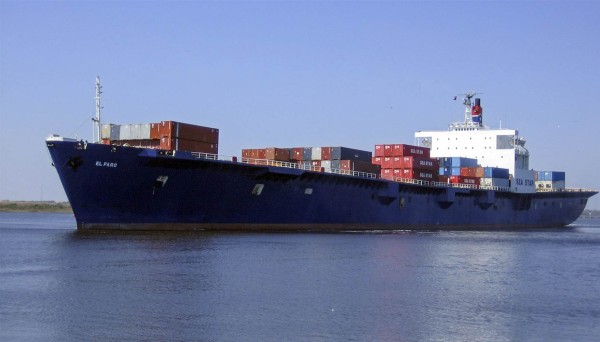Three years after the sinking of El Faro, the deadliest shipping disaster in US’ recent history, Rear Adm. John Nadeau, Assistant Commandant for Prevention Policy reiterated the US Coast Guard’s moves to drive change against shipping tragedies.
The 790-foot, cargo vessel ‘El Faro’, en route from Jacksonville, Florida, to San Juan, Puerto Rico, sank on 1 October 2015, in the Atlantic Ocean during Hurricane Joaquin, taking the lives of all 33 aboard.
Since then, the Coast Guard has continued to look more closely at third parties and vessels they examine on its behalf, RADM Nadeau said. Last October, USCG assessed US flag vessels enrolled in the Alternate Compliance Program and similar programs, selecting 44 vessels for additional oversight, including some government-owned Military Sealift Command and MARAD ships, a subset of the vessels enrolled in the Maritime Security Program, and some deep draft commercial ships that operate between Puerto Rico, Hawaii, Alaska and the continental US.
These vessels had valid Certificates of Inspection and statutory certificates, and were generally up to date on all required exams and surveys. Unlike previous years, every vessel selected was subjected to at least one additional oversight examination and Traveling Inspectors from Coast Guard Headquarters attended these examinations with the local Coast Guard marine inspectors to ensure consistency.
We found that some operators are being proactive and making necessary repairs and process improvements. It is especially encouraging to see responsible operators replacing open lifeboats with new enclosed lifeboats, even though the existing boats are still “serviceable” and technically acceptable under SOLAS and US regulations. However, despite these positive efforts, our findings also confirmed more must be done.
During oversight examinations of the 44 selected vessels, USCG issued over 650 deficiencies for inoperable watertight fittings, load line discrepancies, problems involving firefighting systems and lifesaving appliances, and other areas of non-compliance.
Most of the problems involve the basics and should have been addressed by the crew and operating company through proper preventative maintenance under a healthy safety culture.
Based on these findings, seven vessels were required to undergo an additional SMS audit and the inspection certificates were removed from five vessels for failure to meet the minimum safety standards.
We will continue to conduct risk-based, targeted oversight and increase our evaluation and scrutiny of each vessel’s SMS to determine if the operator has an effective system in place.
The second line of effort is directed at improving oversight system for classification societies that perform delegated work:
I chartered the Third Party Oversight Review Team (T-PORT) in January to initiate these reforms. T-PORT successfully implemented immediate and substantive changes, including the development of more rigorous procedures and detailed policy for both third parties and our local Coast Guard marine inspectors, a substantial increase in auditor training to improve the proficiency of Coast Guard personnel, and establishment of metrics and key performance indicators to monitor third party performance. We also made significant progress toward a single US Supplement to the classification society rules and SOLAS, and created a new office to continue driving improvements necessary to provide robust oversight of third parties and delegated functions.
Third, USCG launched actions to make improvements to marine inspector training program, increase accessions of Maritime Academy graduates, and prioritize the hiring of civilians to fill vacant marine inspector positions. These were immediately initiated by the new Commandant, Adm. Karl Schultz.
Lastly, the USCG has issued a Final Action Memo outlining a dozen standards to modify or develop. To support this line of effort, several proposals have already been submitted to IMO and more are currently under development.
We will work with other IMO Member States to make safety improvements as these topics are added to the agendas of the various IMO working bodies. Updates and modifications to US regulations will follow. We are making substantial progress. But we are not done. A strong and enduring commitment is needed at all levels of the safety framework. Every crew and operator must commit to safety and embrace their responsibilities under the ISM Code. Classification societies must fully and effectively perform their duties. And the Coast Guard must sustain its efforts, deliver needed improvements, increase accountability, and ensure safety standards are upheld.






























































